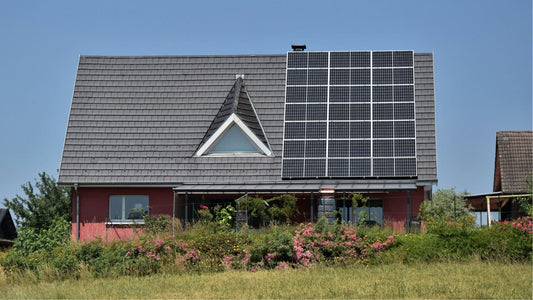Today's consumers face a wide array of options when it comes to choosing the perfect battery solution. Among the most common types of batteries are Lithium Iron Phosphate (LiFePO4) and Lithium Ion. However, many people find themselves wondering, "Which one is the best choice for me?" In this article, we will explore the differences, advantages, and disadvantages of both these battery types. Plus, we’ll highlight the finest battery offerings from Rocksolar, a renowned industry leader.
Understanding LiFePO4 Batteries
LiFePO4 batteries, also known as Lithium Iron Phosphate batteries, are well-regarded for their high energy efficiency, longevity, and safety features. These qualities make them ideal for applications requiring a high load, such as electric vehicles and solar energy storage.
LiFePO4 batteries have a lower energy density compared to Lithium-Ion batteries, but they make up for it in terms of durability and safety. A key advantage is their stable chemical structure, which reduces the risk of overheating and makes them safer to use in various applications.
Getting to Know Lithium-Ion Batteries
On the other hand, Lithium-Ion batteries have made a name for themselves in consumer electronics, thanks to their high energy density. This means they can deliver a large amount of energy while remaining relatively small in size – a crucial factor in portable devices such as smartphones and laptops.
However, the high energy density comes with potential safety risks. Lithium-Ion batteries can overheat and, in some cases, cause a fire if not properly managed. Despite these issues, they remain popular due to their efficiency and versatility.
LiFePO4 vs Lithium-Ion: A Comparative Analysis
The following table provides a comparative analysis of LiFePO4 and Lithium-Ion batteries based on various aspects:
| Features | LiFePO4 | Lithium-Ion |
|---|---|---|
| Energy Density | Lower | Higher |
| Safety | Higher (Less risk of overheating) | Lower (Risk of overheating) |
| Life Cycle | Longer | Shorter |
| Cost | Higher upfront cost | Lower upfront cost |
| Environmental Impact | Less harmful | More harmful |
It’s important to note that the right choice depends on the specific use case. For applications requiring high energy output and longevity, LiFePO4 might be the better choice. Conversely, for portable applications where size and weight are a concern, Lithium-Ion could be the preferable option.
Rocksolar’s Top-Notch Battery Solutions
Rocksolar offers a comprehensive range of both LiFePO4 and Lithium-Ion batteries suitable for various applications. Here are some of their best offerings:
- 12V 18Ah Deep Cycle LiFePO4 Battery with BMS System
- 12V 100Ah Deep Cycle LiFePO4 Battery with BMS System
- 48V 50Ah LiFePO4 Battery
- 24V 100Ah Deep Cycle LiFePO4 Battery with BMS System
- 48V 100Ah LiFePO4 Marine Battery
These batteries are designed with advanced technologies that ensure superior performance, safety, and long-lasting use.
Choosing the Right Battery for Your Needs
When deciding between a LiFePO4 or a Lithium-Ion battery, consider the following:
- Energy Needs: Do you require a high energy output, or are size and weight more important?
- Longevity: Are you willing to invest in a battery that offers a longer lifespan, like a LiFePO4?
- Safety: Do safety concerns play a significant role in your choice? LiFePO4 batteries offer a safer solution due to their stable chemical structure.
- Cost: Are you prepared to pay a higher upfront cost for long-term benefits, or do you need a more cost-effective solution right now?
In conclusion, the choice between LiFePO4 and Lithium-Ion batteries depends heavily on your individual needs and requirements. It’s essential to weigh the pros and cons before making a decision. Whether you need a battery for an electric vehicle, solar power storage, or a portable device, Rocksolar offers an array of reliable and high-performing options to cater to your needs.
Regardless of the type of battery you choose, both LiFePO4 and Lithium-Ion batteries from Rocksolar ensure quality, durability, and superior performance.
Choose wisely, and power your future sustainably with Rocksolar.




